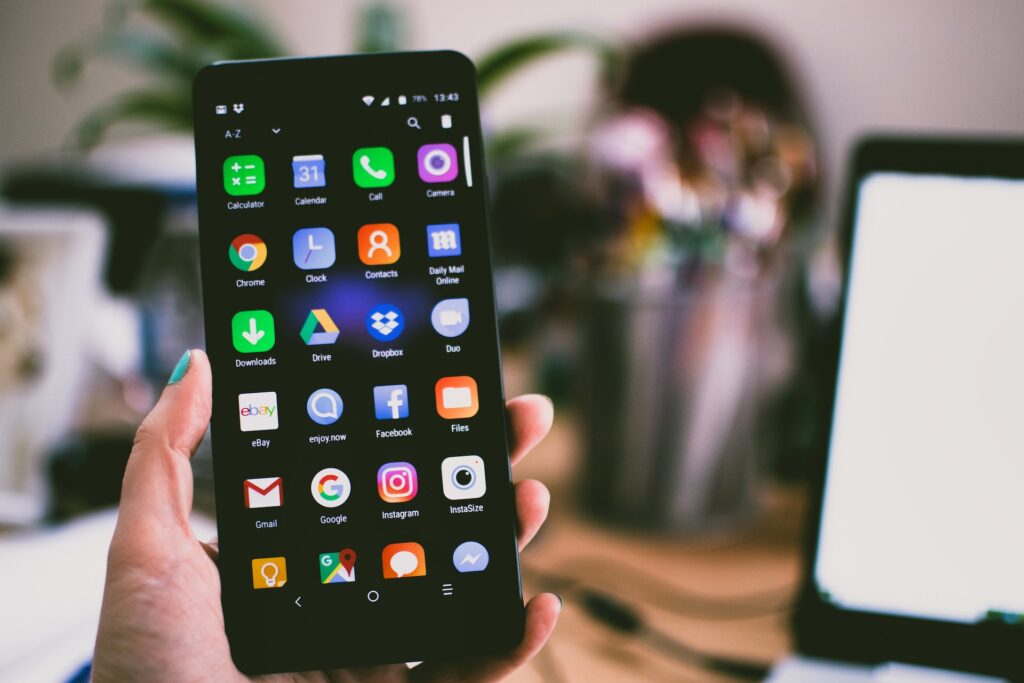If you’re thinking about getting yourself a new mobile device, there are a few things you should definitely consider. It can be quite overwhelming with so many options available in the market but fret not, I’ve got you covered.
In an upcoming article, we’ll explore all the important factors you need to take into account when selecting your new mobile device. From operating systems and specifications to battery life and camera quality, we’ll delve into each aspect to help you make an informed decision. So, whether you’re a tech enthusiast or just looking for a reliable phone, stay tuned to learn more about what you should consider when choosing a new mobile device. When it comes to choosing a new mobile device, there are several factors that you should consider to ensure that you make the right decision. From operating system compatibility to camera quality, each aspect plays a crucial role in determining the overall performance and user experience of your device. In this article, we will explore the key factors that you should take into account when choosing a new mobile device.

Operating System Compatibility
Assessing the compatibility of the device with different operating systems is an important factor to consider. The operating system is the backbone of your device, and it determines the user interface, app availability, and overall functionality. The two most popular operating systems for mobile devices are Android and iOS.
If you are already familiar with a specific operating system, it may be easier for you to stick with it when choosing a new mobile device. However, if you are open to exploring new options, it is crucial to research and understand the benefits and limitations of each operating system.
Furthermore, it is essential to consider the availability of essential apps and services on the chosen operating system. Some apps and services may be exclusive to one operating system, while others may be available on both but with varying degrees of functionality. Assessing the availability of the apps and services you rely on is crucial to ensure a seamless experience on your new mobile device.
Hardware Specifications
The hardware specifications of a mobile device play a significant role in determining its performance and capability. When evaluating hardware specifications, two key factors to consider are the processor speed and performance, as well as the RAM and storage capacity.
The processor is responsible for executing tasks and running applications on your device. A faster processor, with multiple cores, will provide smoother performance and faster app launches. It is essential to consider the processor speed, especially if you plan on using resource-intensive applications or gaming on your new mobile device.
In addition to the processor, the amount of RAM and storage capacity is also crucial. RAM determines the multitasking capabilities of your device, allowing it to handle multiple applications simultaneously without lag. Similarly, storage capacity determines how much data, such as apps, photos, and videos, you can store on your device. Assessing your needs and considering the amount of storage and RAM required is essential to ensure that your new mobile device can handle your usage patterns.
Another aspect to consider is the quality and resolution of the display. The display is the primary interface through which you interact with your device, so it is crucial to evaluate its quality. Factors such as resolution, color accuracy, brightness, and viewing angles should all be considered when choosing a new mobile device. A high-quality display will enhance your user experience, especially when consuming media or playing games.
Battery Life
Battery life is a critical factor to consider when choosing a new mobile device, especially if you are a heavy user or frequently travel without access to charging points. Evaluating the battery capacity and its impact on usage duration will help you determine how long your device will last on a single charge.
Typically, the larger the battery capacity, the longer the device will last. However, it is important to note that battery life can be influenced by factors such as screen brightness, background app activity, and power-hungry applications. Therefore, considering the device’s power-saving features is also essential.
Many mobile devices now come with power-saving modes or battery optimization features that can extend the battery life by reducing background app activity or adjusting screen brightness. Assessing these features and understanding how they can help you optimize your device’s battery life will ensure that you can use your new mobile device for extended periods without worrying about running out of power.

Camera Quality
The camera capabilities of your new mobile device are undoubtedly an important consideration, especially if you enjoy taking photos or recording videos. When assessing the camera quality, several factors should be taken into account.
The resolution and capabilities of the main camera are crucial. Higher resolution cameras will capture more details and produce better quality images. Additionally, features such as optical zoom, image stabilization, and different shooting modes can enhance your photography experience.
In addition to the main camera, it is important to consider the availability of additional camera features. Some devices come with multiple cameras, such as wide-angle or telephoto lenses, which can provide different perspectives and enhance your photography capabilities. Considering these additional features can help you choose a new mobile device that aligns with your photography preferences.
Lastly, evaluating the quality of the front-facing camera is important, especially if you frequently take selfies or participate in video calls. The front-facing camera should have a high enough resolution to capture clear images and should perform well in different lighting conditions. Considering the quality of the front-facing camera will ensure that you can enjoy high-quality video calls and capture memorable moments with ease.
Connectivity
The connectivity options available on your chosen mobile device are important to consider, as they determine how you can stay connected to the internet and other devices. Assessing the availability of Wi-Fi and cellular connectivity options is crucial.
Wi-Fi connectivity allows you to connect to wireless networks, which can be faster and more stable than cellular data connections. It is important to ensure that your new mobile device supports the latest Wi-Fi standards for optimal performance and compatibility with networks.
Additionally, cellular connectivity options, such as 4G or 5G, are important if you rely on mobile data to stay connected on the go. It is crucial to understand the cellular network technologies supported by your new mobile device and to ensure that they align with the networks available in your area.
Storage Options
Evaluating the availability and expandability of storage options is important when choosing a new mobile device. The storage capacity of your device determines how much data you can store, including media files, apps, and documents.
Some devices come with expandable storage options, such as microSD card slots, which allow you to increase the available storage space. Assessing your storage needs and considering the availability of expandable storage can help you choose a device that can accommodate your requirements.
Furthermore, it is important to consider the need for additional storage for media files and apps. If you frequently capture videos or store large media files on your device, choosing a device with ample built-in storage capacity is essential. This will ensure that you have enough space to store your files without constantly having to delete or transfer them.
Design and Ergonomics
The design and ergonomics of a mobile device play an important role in its usability and user experience. Assessing the design aesthetics and build quality of the device is important, as it determines how the device feels in your hand and how comfortable it is to hold and use.
The size and weight of the device are crucial factors to consider. Some users prefer larger devices with larger displays, while others prefer smaller devices that are easier to handle with one hand. Considering your personal preferences and usage patterns will help you choose a device that fits your needs.
Furthermore, evaluating the build quality of the device is important to ensure that it can withstand daily usage and potential accidental drops. Devices with premium materials and sturdy construction are generally more durable and offer a higher quality feel.
Price and Budget
Setting a realistic budget for the purchase of your new mobile device is important. With the wide range of options available in the market, it is crucial to define your budget and determine the features that are most important to you.
Comparing the prices and features of different devices within your budget can help you make an informed decision. Keep in mind that while higher-priced devices may offer more advanced features and better performance, there are often options available at lower price points that still meet your needs.
Reviews and User Feedback
Before making a final decision, it is important to take into account expert reviews and user feedback. Reading reviews from technology experts can provide valuable insights into the performance, reliability, and overall user experience of a mobile device.
User feedback is also important, as it reflects the real-life experiences and perspectives of people who have used the mobile device. Common issues and complaints reported by users can help identify potential weaknesses or limitations of a specific device.
Considering both expert reviews and user feedback will help you gauge the overall satisfaction and performance of a device, allowing you to make a more informed decision.
Conclusion
Choosing a new mobile device is a significant decision that requires careful consideration of multiple factors. By taking into account the operating system compatibility, hardware specifications, battery life, camera quality, connectivity options, storage options, design and ergonomics, price and budget, as well as reviews and user feedback, you can ensure that you choose a device that meets your specific needs and preferences.
Remember to prioritize your personal preferences and specific needs when making the final decision. Each individual has different requirements and usage patterns, so it is important to choose a device that aligns with your lifestyle and offers the features that matter most to you.
By following this comprehensive guide and considering all the aforementioned factors, you will be better equipped to make an informed decision when choosing your new mobile device. Whether you are a photography enthusiast, a gamer, or a business professional, selecting the right mobile device will enhance your overall experience and ensure that you can make the most out of your investment.



